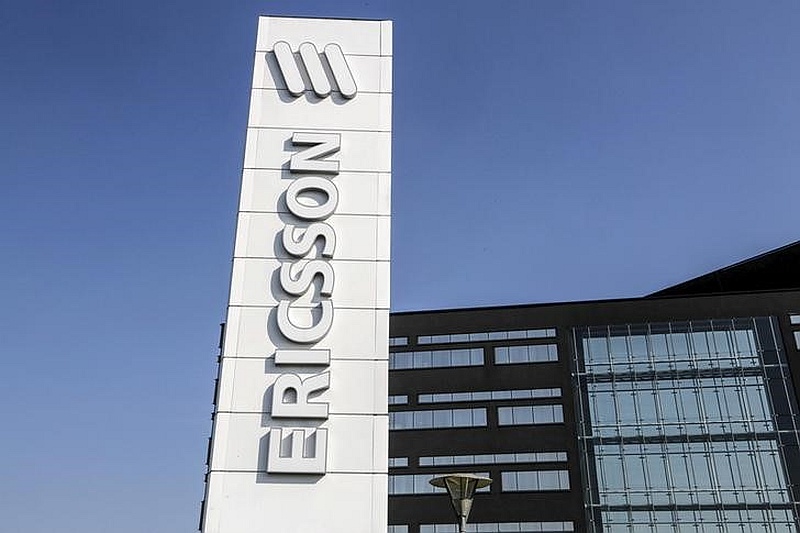- Home
- Mobiles
- Mobiles News
- Ericsson's Plea for 'Confidential Club' in Xiaomi Patent Case Granted by Delhi High Court
Ericsson's Plea for 'Confidential Club' in Xiaomi Patent Case Granted by Delhi High Court

The Delhi High Court Tuesday allowed telecom major Ericsson's plea seeking to constitute a 'confidential club' to ensure limited access to the documents in its ongoing patent tussle with Chinese handset maker Xiaomi.
The high court said there was no impediment if the confidential club was created and access to the documents would be limited by adopting an eight-point procedure.
"The law... furthers the argument of the plaintiff (Ericsson) that such confidential club though can be created but the access to information may be restricted, especially in patent cases," Justice Yogesh Khanna said.
The court's order came on Ericsson's application that such confidentiality clubs have been constituted even in the past in cases involving patents and trademarks and in disputes involving fair, reasonable and non-discriminatory (FRAND) issues.
The application was filed by Ericsson in a pending suit for permanent injunction against Xiaomi seeking to restrain it alleging violation and infringement of its various patents.
Ericsson's counsel had argued that it was legitimate for the courts to constitute a confidentiality club to ensure that the sanctity and confidentiality of business and commercially sensitive information, filed by a party, is maintained.
Though Xiaomi Technology was not averse to constitution of such a confidentiality club, it said it should be made a party to such a club or granted access to the information.
The eight-point procedure to be adopted includes that all confidential license agreements relating to similarly placed parties be permitted to be filed in a sealed cover and kept in the safe custody of the registrar general of the high court.
"Each party be directed to provide on an affidavit, a list of no more than five lawyers (who are not and have not been in-house lawyers of one of the parties) and no more than three external expert witnesses, who alone will be entitled to see the aforesaid confidential documents/patent license agreements," it said.
The court said those lawyers and expert witnesses will be bound by its confidentiality orders and not make copies or disclose the contents of the confidential documents/patent license agreements to anyone else, including in other legal proceedings, communications to the press and blog publications so that the spirit of confidentiality regime is preserved.
The court said the parties will be allowed to inspect the patent license agreements only through the confidentiality club members and no copies will be made of such confidential documents or license agreements.
"The parties would give copies of the confidential documents/patent license agreements to the members of the confidentiality club only after redacting the confidential information including the name of the parties. However, the rates/products will not be redacted," it said.
For the latest tech news and reviews, follow Gadgets 360 on X, Facebook, WhatsApp, Threads and Google News. For the latest videos on gadgets and tech, subscribe to our YouTube channel. If you want to know everything about top influencers, follow our in-house Who'sThat360 on Instagram and YouTube.
Related Stories
- Samsung Galaxy Unpacked 2025
- ChatGPT
- Redmi Note 14 Pro+
- iPhone 16
- Apple Vision Pro
- Oneplus 12
- OnePlus Nord CE 3 Lite 5G
- iPhone 13
- Xiaomi 14 Pro
- Oppo Find N3
- Tecno Spark Go (2023)
- Realme V30
- Best Phones Under 25000
- Samsung Galaxy S24 Series
- Cryptocurrency
- iQoo 12
- Samsung Galaxy S24 Ultra
- Giottus
- Samsung Galaxy Z Flip 5
- Apple 'Scary Fast'
- Housefull 5
- GoPro Hero 12 Black Review
- Invincible Season 2
- JioGlass
- HD Ready TV
- Laptop Under 50000
- Smartwatch Under 10000
- Latest Mobile Phones
- Compare Phones
- Moto G15 Power
- Moto G15
- Realme 14x 5G
- Poco M7 Pro 5G
- Poco C75 5G
- Vivo Y300 (China)
- HMD Arc
- Lava Blaze Duo 5G
- Asus Zenbook S 14
- MacBook Pro 16-inch (M4 Max, 2024)
- Honor Pad V9
- Tecno Megapad 11
- Redmi Watch 5
- Huawei Watch Ultimate Design
- Sony 65 Inches Ultra HD (4K) LED Smart TV (KD-65X74L)
- TCL 55 Inches Ultra HD (4K) LED Smart TV (55C61B)
- Sony PlayStation 5 Pro
- Sony PlayStation 5 Slim Digital Edition
- Blue Star 1.5 Ton 3 Star Inverter Split AC (IC318DNUHC)
- Blue Star 1.5 Ton 3 Star Inverter Split AC (IA318VKU)

















